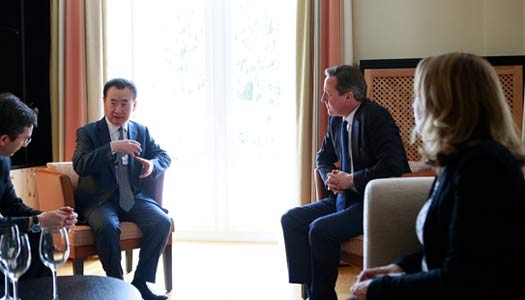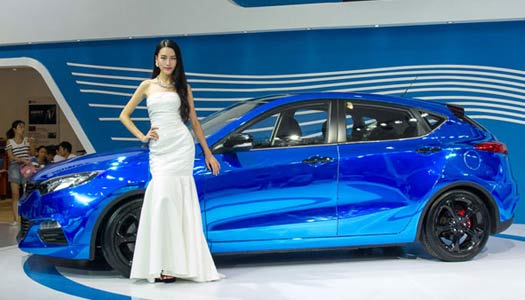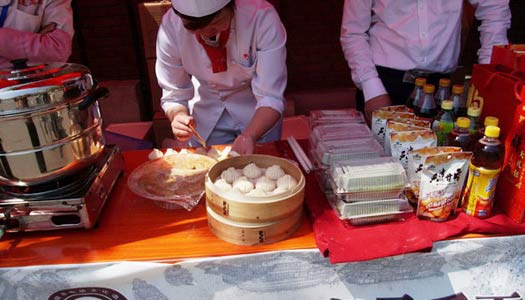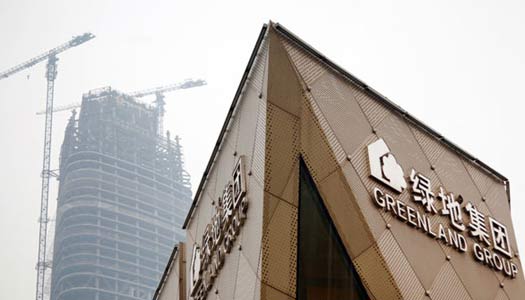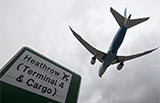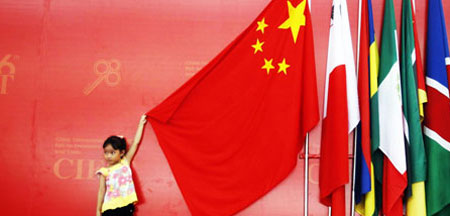
Chinese automakers build overseas plants
Updated: 2012-08-15 01:14After shipping their vehicles for years to conquer markets outside China, Chinese automakers are now speeding up their overseas expansion by establishing local production plants.
Chinese media reported that during his visit to China, Pongsawat Svasti, Thai minister of industry, talked to Chen Zhixin, executive vice-president of SAIC Motor Corp Ltd, about the possibility of a joint venture between SAIC and a Thai car maker in the Southeast Asian country.
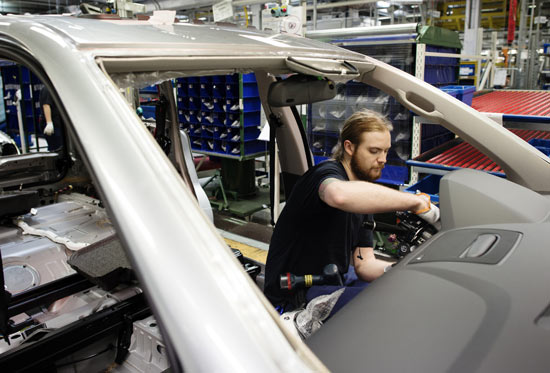 |
|
A worker at Volvo Car Corp's production plant in Gothenburg, Sweden. Zhejiang Geely Holding Group, Volvo's parent company, has set up five assembly plants outside China. [Photo/China Daily] |
The 50-50 joint venture is expected to first produce SAIC's MG6 sports car, Chinese media reported, while SAIC's Maxus commercial vehicles are also expected to be made in Thailand in the near future. SAIC has not confirmed the information.
Earlier this month, SAIC — China's largest automaker measured by sales and revenue — said that next year it will start assembling its new model, the MG3 Supermini, at its plant in Longbridge, Birmingham.
After acquiring the British classic car brand MG Rover in July 2005, SAIC maintained the Longbridge plant. In April 2011, it began to assemble the five-door compact MG6, the first all-new MG model in 16 years.
China's automobile market — which boomed in the last three years — became the most important marketplace for nearly all global automakers. Most of them established local production bases in a bid to increase their market share.
The fierce competition hampered the development of China's homegrown brands in the domestic market, especially after growth slowed this year.
In recent years, Chinese automakers aggressively tried to boost their sales outside China, especially in developing economies with increasing demand for low-priced vehicles.
Data from the China Association of Automobile Manufacturers showed that in the first half, the total sales of China's homegrown auto brands decreased 0.16 percent over last year to 3.15 million units in China. However, exports surged 28 percent year-on-year to 487,900 units.
China's total vehicle exports are expected to surpass 1 million units in a year for the first time in 2012, up 27.48 percent year-on-year.
After establishing their brands in overseas markets and achieving a certain sales volume, Chinese automakers set up local production bases.
By the end of June, China's automakers had established 546 companies and institutes abroad using investments approved by the Ministry of Commerce, said Chen Lin, an official with the ministry's Department of Outward Investment and Economic Cooperation.
"Chinese automakers' overseas operations are not only an important step to expand in the global market, but also a natural choice for the companies' self development," said Chen. "We should encourage their outbound investments and support them to increase their capital exports to overseas markets."
Zhejiang Geely Holding Group has set up five assembly plants outside China, with two new investments in Egypt and Uruguay this year. The company, which made its name with the Volvo takeover, plans to add two to three new factories overseas in the near future.
Meanwhile, Chery Automobile Co has established 16 manufacturing bases abroad, with an overseas sales network of 1,153 dealers.
Zhang Junyi, senior auto analyst with the German consulting firm Roland Berger Strategy Consultants, said that China's automakers are expanding in overseas markets in the same way that international brands like General Motors and Ford expanded in China years ago.
"It's the main way, I mean from simple vehicle exports to investing in local production, for automakers to become true international brands," Zhang said.
However, analysts also said that China's automakers face a series of challenges abroad from fluctuations in exchange rates to trade protection and emission restrictions.
For example, Brazil's recent policy change on the taxation of the automotive industry, as well as the depreciation of the local currency, might have put an end to JAC Motors' production project in the world's fifth-largest auto market.
The Chinese company was reported to have recently stopped the construction of its $500 million plant in Brazil.
In September, Brazil's government raised taxes by 30 percentage points on imported cars and trucks and those that fail to meet localization rates of 65 percent, in a move to replace imports with domestically made vehicles.
The measure, which will remain in place until December, will increase Brazil's industrial product tax on cars by between 7 and 25 percent, depending on engine size, to as much as 55 percent.
Contact the writer at lifangfang@chinadaily.com.cn
Related Links
Chery Auto Jan-July exports up 26.1%
China's auto sales up 3% in H1
Chinese, German auto firms sign co-op deal
Great Wall beefs up in New Zealand auto market
China's Dongfeng plans aggressive auto export
Chinese auto maker sets eyes on market in Africa
MG Motor joins hand with Birmingham airport
- BYD exports three electric cars to Thailand
- Grid gets first jolt of residential solar power
- US now largest buyer of China's exports
- China's outbound M&As on the rise
- Tobacco control may entail price, tax rises
- Quanzhou becomes pilot financial reform zone
- New automobiles shine at Geneva Motor Show
- World's longest high-speed rail 'on track'
- Jiugui Liquor involved in plasticizer scandal again
- Accident reignites school bus safety concerns
- China to revise labor law
- Trademark registration under scrutiny
- Dinner ban takes toll on liquor firms
- CIC tables bid for London's Chiswick Park
- Property buyers eye overseas market
- Call for law to protect personal information
- China to cut train ticket prices
- Christmas business
- Solar industry to get jolt from new policies
- KFC chicken under spotlight



